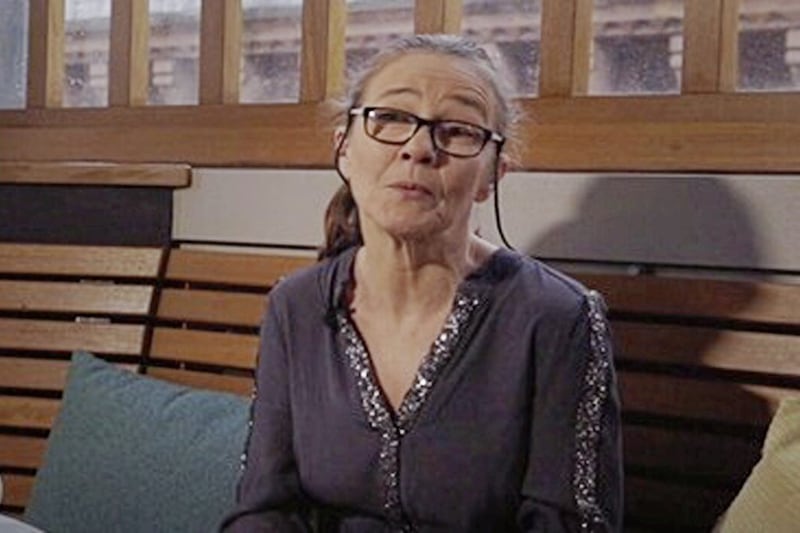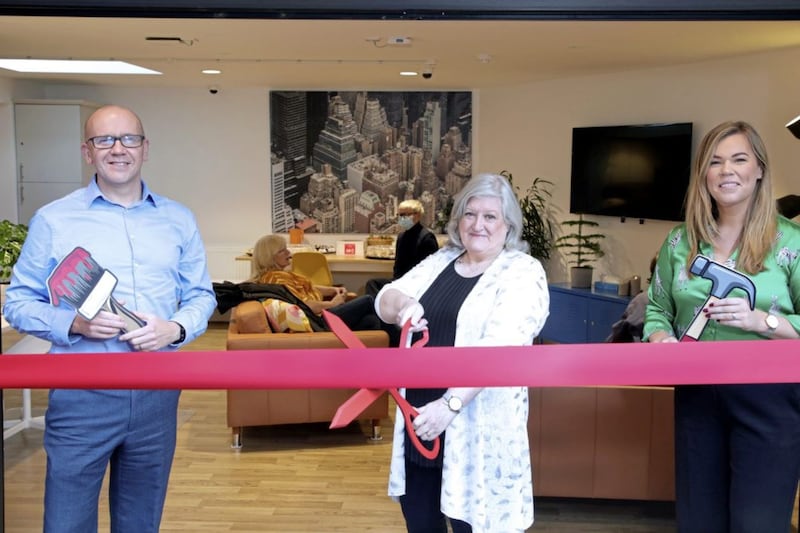NO one knew that Philip Reilly was sleeping in his car. Not his two fond children, none of his loving wider family and caring friends.
Even Philip didn't know, as he stood on a motorway bridge, whether he would take his own life that night.
Four years earlier, the 56-year-old had what he thought was the perfect life.
He was married to his childhood sweetheart, living in a large four-bedroom house in the desirable Fruithill area of west Belfast, enjoyed a close relationship with his daughter and son and was a doting grandfather to his adored grandson.
"My wife and I had a very close relationship, but she she wanted a new start. I'm broken hearted. I see stuff now in black and white, because the colour was taken out of my life when my wife went out the door.
"We had a good marriage up until she left. We still had our Friday nights drinking wine and eating chips.
Read More:
- Increase of 220 per cent in rough sleepers on Belfast streets
- 'One more night on them streets and I would be dead' - Mona's story
- Patrick Murphy: As we watch Britain's Brexit chaos, Ireland cannot afford to be too smug
- Homelessness crisis could see many sleeping on the streets this winter, MLAs warn
"When she left I sort of got a shock because my wife looked after everything, maintained the bank, everything."
Like every picture perfect life, there had been strains beneath the surface.
He is frank about his long battle with depression and the struggles after losing his job.
"I've been suffering depression for years. I had an accident at work which pensioned me out of my job. I'd been a caretaker for 14 years with the education board.
"I'd been in counselling for years. When someone says you're on the scrap heap in a job that you loved and you know that you can never go back to that kind of work - that's hard to take.
"I've been suffering depression most of my life, fighting it. I can fight anything else. I was able to give up smoking and a lot of things, but this mental business is something I have to work hard at."
He took the breakdown of his marriage hard.
"I was left with a big, big house of memories. My son was married from my house and I would look at the stairs and remember him walking down on his wedding day."
With his wife, the main breadwinner gone he could not make the monthly repayments and attempted to have the family home repossessed so he could start again.
However, the process became mired in red tape.
"I spent four very cold and miserable years trying to give it back to the mortgage company. They tortured me for two years and after two years it started all over again."
Told by the Housing Executive that if he left the house he would make himself "voluntarily homeless", unable to pay for heat and electricity, his depression deepened and he began to shun company.
"I was still in contact with my daughter and my son, but I didn't let on to them. I spent four years in isolation.
"I walked out of the property and contacted the Housing Executive and I said, `I can't do this anymore', I was out of the house for about a week, unknown to anybody, but I was living in my car.
"One day I nearly jumped the bridge.
"I was still worried about the property, still worried about what was going to happen, where I was going to end up."
He walked into the Housing Executive, adamant he "couldn't deal with the madness that was in those shelters", having visited his brother in some troubling hostels before he died.
"Two lovely people walked in behind the (caseworker) and they were Caroline and Ruth and they were from the Simon Community and they said we can offer you a place."
Philip spent 100 days in their hostel in Saintfield, Co Down, a place where the staff knew his name and checked on him every night.
"You get a room and a shower and a bathroom and if the staff were there 24/7 if you had a problem."
"I was in Saintfield about two weeks and I told my children not to worry, I was with the Simon Community. They were delighted that I finally got out of the house."
Both were "shocked and disappointed that I hadn't taken them up on their offer. I had generous offers of a place to sleep, but I didn't want to put a strain on other people.
"I still feel I don't deserve things, that's what I'm trying to accept."
He was saddened by what he saw at the hostel.
"One man and I would have breakfast every day, then he would go to work. His wife and child were in another hostel. She goes to school and them comes back home to a hostel.
"Homelessness affects everyone. The person next to you could be in a hostel or sleeping in their car."
Now happily ensconced in his own flat at Cullingtree Fold on the lower Falls and planning to fly out to New Zealand to visit his grandson, daughter and her new husband, he is filled with wonder at how his life has been transformed in the last year.
"I walk that bridge some days to come into town and I still think of myself standing there.
"I pinch myself and can't believe where I am. Every day I wonder if someone is going to take it away from me."








